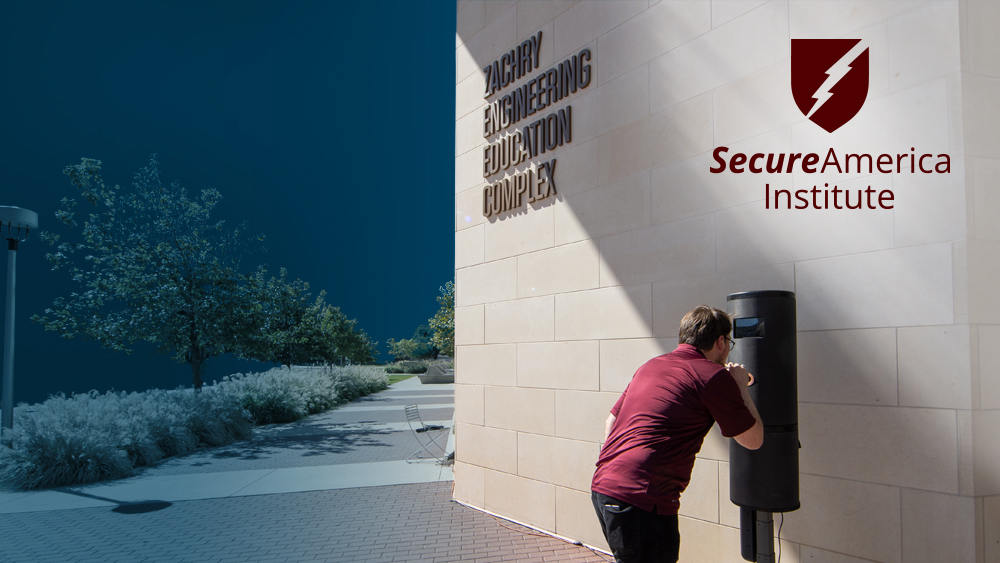
Is it possible to smell COVID-19? The SecureAmerica Institute (SAI) and The Texas A&M University System collaborated with Worlds Enterprises Inc. and the U.S. Air Force to answer that question last November with the Worlds Protect breathalyzer kiosk, which uses artificial intelligence to “smell” or detect COVID-19 on an exhaled breath. The next step is to make this technology even more accessible.
With funding from the U.S. Navy, SAI plans to explore different ways to ruggedize the Worlds Protect kiosk so that the technology can be robust enough to function in harsh environments. Military deployed in regions that are hot and dry, or even on ships dealing with the constant jostling motions caused by the ocean, must be able to rely on these devices to work correctly.
“The kiosk might not look like a kiosk anymore,” said Chris Holshouser, SAI director of applied programs and strategic partnerships. “We have to be able to accommodate sand, salt and different conditions that the new sensor package is going to be exposed to, so that means we’re looking at options such as miniaturization to deploy the technology so it can survive and function as if it were in a controlled environment.”
Miniaturization will expand where and how the Worlds Protect technology can be embedded, such as right into military helmets. This opens a path forward to incorporating COVID-19 detection technology into wearables or even handheld metabolic breath systems.
Dr. David Staack, associate professor of mechanical engineering at Texas A&M University, collaborated with Worlds Enterprises Inc. to develop the original kiosk prototype, which requires a person to use a disposable straw to blow into a copper inlet. In less than a minute, test results with accuracy comparable to a polymerase chain reaction (PCR) test can be sent to someone’s smartphone.
“Before the Delta variant, we started to think there was no longer a demand or urgency for our technology,” said Holshouser. “But with Delta and now Omicron, we’ve realized the need for this technology is not slowing down. We need the ability to rapidly screen, and you don’t get any faster than this.”
Although the SAI team is deconstructing the original Worlds Protect prototype to create more accessible versions of it, such as a version for use in heating, ventilation and air conditioning (HVAC) systems, the kiosk still has its uses, particularly because it produces results as accurate as the well-known PCR tests. As a result, SAI is working with Elbit Systems to further commercialize it for use in places where people congregate, such as college campuses and amusement parks. The technology might also eventually be used to detect things beyond COVID-19, such as the flu or other health indicators like fatigue.
“This technology is a game changer and demonstrates the SecureAmerica Institute’s commitment to fast forwarding the lab-to-commercialization process,” said Rob Gorham, SAI executive director. “The public-private model has once again proven to be successful in optimizing team dynamics to make this a reality.”
In 2022, SAI is opening a new facility on the RELLIS Campus, where they will continue the important work of finding innovative solutions to new questions and problems.
Collaborate with the SecureAmerica Institute
If you’re interested in forming a strategic partnership or wish to work together to solve the next rapid production challenge, reach out to Chris Holshouser at cholshouser@tamu.edu.